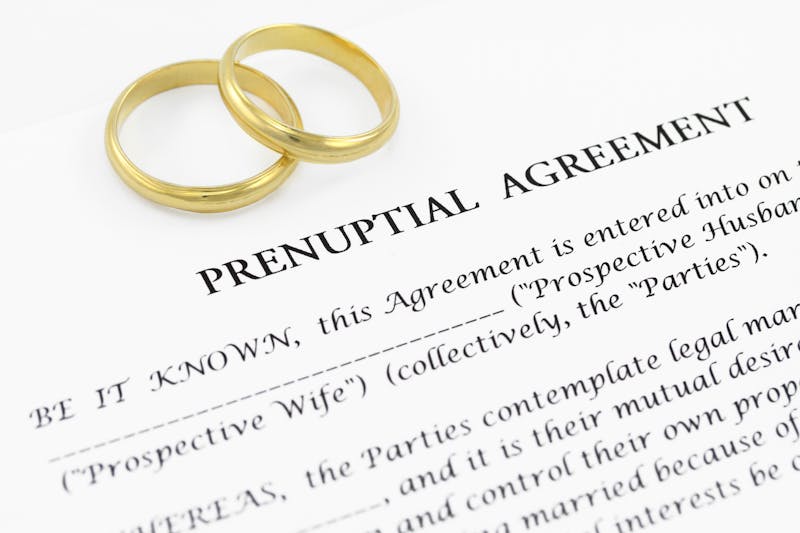
A prenuptial agreement, commonly referred to as a prenup, can be a powerful tool for protecting your financial future. While a prenuptial agreement can often be associated with celebrities, they are valuable for anyone getting married. Not only will a prenuptial agreement provide a sense of clarity but also security in your marriage. However, not all prenuptial agreements are enforceable in court if they fail to comply with the law. If you are considering divorce or other circumstances, like significant change in financial landscape and have a prenup, it’s essential to understand whether it will be enforceable or not.
When a Prenuptial agreement Might Not Hold Up in Court
Your prenuptial agreement should offer peace of mind, but only if it was properly written and executed. If certain requirements are not complied with, it may not be upheld in Court. It is important to find an experienced family law and divorce attorney to draft your prenup. Here are a few common reasons a prenuptial agreement may be challenged:
1. It Was Signed Under Pressure
If you were pressured, coerced, or rushed into signing your prenup, a court may consider it invalid. A prenuptial agreement should be signed voluntarily, with both parties fully aware of its contents and implications. If you felt you had no choice, your prenuptial agreement might not stand up in court.
2. Lack of Full Financial Disclosure
Both partners must be completely honest about their financial situation when drafting a prenup. In Florida, this disclosure is typically proven through a signed financial affidavit, sworn to be true. If your spouse hid assets or misrepresented their income and debts, the agreement could be thrown out. Full transparency is key to ensuring a prenuptial agreement is enforceable.
3. It Contains Unfair or Unreasonable Terms
A prenuptial agreement must be fair. If your prenuptial agreement heavily favors your spouse—for example and leaves you with nothing while your spouse keeps all assets—a court may find it unconscionable and refuse to enforce it. A fair prenuptial agreement should protect both parties, not just one.
4. It Was Not Properly Executed
For a prenuptial agreement to be legally valid, it must meet specific legal requirements, including being in writing, signed by both parties, and properly notarized. If your prenuptial agreement does not follow your state's legal standards, it may not be enforceable.
Protecting Yourself Moving Forward
If you're considering divorce and need legal support in the Northeast Florida area, call us at 904-900-2419 or schedule a call here! Our team of dedicated attorneys is committed to advocating for women’s rights and best interests. Take control of your financial future. Whether you need to challenge an unfair prenuptial agreement or ensure your agreement holds up, we are here to support you.

